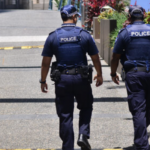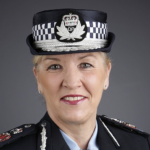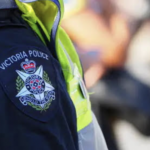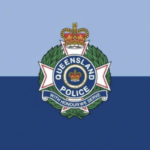Queensland Police Commissioner Bows to Police Union by Backflipping on Chokehold Directive
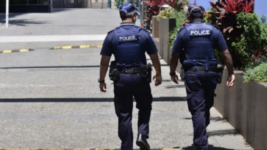
The Head of the Queensland Police Union (QPU), Ian Leavers, has told the state’s police officers they can defy a direction issued by Queensland Police Commissioner, Katarina Carroll, to prohibit the use of potentially deadly ‘chokeholds’ on members of the public, calling the top cop’s direction ‘unlawful’.
Ms Carroll issued the direction on 14 April 2023 over concerns the lateral vascular neck restraint (LVNR), also known as the ‘sleeper hold’ or ‘chokehold’, poses an unjustifiable risk of serious injury including suffocation. She said at the time the direction was “effective immediately.”
Her decision was based on a 12-month review of the LVNR, and brought Queensland into line with other Australian States and Territories.
Dangers of chokeholds
Queensland Coroners have considered the LVNR in four separate fatal incidents since 2011.
It has always been highly controversial because it involves compressing the arteries and veins in the neck, stopping blood supply to the brain.
It has the potential to be deadly if something goes wrong – and even the most experienced and trained users of the move can make a mistake.
Chokeholds and other moves which place pressure on the neck came under fire globally after the death of George Floyd, so as far as many in the community were concerned, Ms Carroll’s decision was welcome – it made a lot of sense, particularly given the fact that police officers have a lot of options available to them, to deal with aggressive, violent and resistant offenders, including weapons such as tasers, capsicum spray and guns.
In fact, many countries, including the US and France are in the process of making change effectively removing LVNR and similar types of techniques from policing, recognising how dangerous they can be, if not applied properly or applied on people with underlying health conditions.
Police Commissioner bows to Union pressure
The Union was outspoken in its criticism of the Commissioner’s direction to prohibit the technique.
In response, the Queensland Police Service (QPS) has recently issued a ‘clarification’ to the effect the technique can be applied ‘in dangerous situations’.
“A clarification was issued to QPS officers on Monday reaffirming that the LVNR not be used in the course of ordinary policing duties and outlining statutory provisions concerning force that may lawfully be used to prevent death or grievous bodily harm”, a police spokesperson told the media.
Mr Lever said in response to the ‘backflip’:
“We knew we had to keep police safe, even if the commissioner wasn’t, and now the commissioner’s original unlawful direction has been rescinded, the QPU has ensured that police can again use the LVNR to defend themselves.”
Union apparently more powerful than top cop
Reading between the lines, it could be perceived that over the past few weeks, QPU has flexed its considerable muscle to pressure the Queensland Police’s top brass to rescind the original decision.
Not only does the announcement overturning the ban show just how much power the union wields, but it has further undermined Police Chief Carroll’s credibility, at a time when her leadership has been under the microscope and the subject of much criticism given the general disarray within the Queensland police force – there have been numerous scandals in the past months involving toxic workplace culture, racism, sexism, and problems keep coming.
Only recently a task force was set up to review evidence samples which had been previously submitted to Queensland Forensic and Scientific Services (QFSS) for DNA testing in criminal cases dating back to 2018. And the process will take some time, however the DNA bungle could affect thousands of criminal convictions.
Several weeks ago, Ms Carroll also faced the news that she may have to reinstate more than 20 officers who were sacked for disciplinary reasons (such as domestic violence, drugs and the misuse of personal information) after a court ruling found the force’s current practice for instigating disciplinary proceedings was “not valid”.
‘Confusing’ messages
This week the embattled leader has been quick to reframe the backflip on the chokehold, insisting that the LVNR won’t be used in the in the course of ordinary policing duties and also insisting that the QLD Police’s position has not changed but that last month’s announcement needed ‘clarification’.
According to QPS, the clarification issued to police officers this week includes statutory provisions concerning force that may lawfully be used to prevent death or grievous bodily harm.
But the statements only add to the confusion for the general public, who have a right to know and understand the circumstances when a chokehold can be used, and how much force can be applied.
Certainly in New South Wales there have been calls for many years for more explicit definitions under the law as it pertains to a police officer’s use of ‘reasonable force’.
In New South Wales, Section 231 of the Law Enforcement (Powers and Responsibilities) Act 2002 (LEPRA) states:
“A police officer or other person who exercises a power to arrest another person may use such force as is reasonably necessary to make the arrest or to prevent the escape of the person after arrest.”
Any force that is excessive is considered to be an assault under the law. However, exactly what is considered to be ‘reasonable force’ depends on he circumstances.
In Queensland, police have previously been trained to apply the LVNR hold during a violent struggle at the point of arrest.


